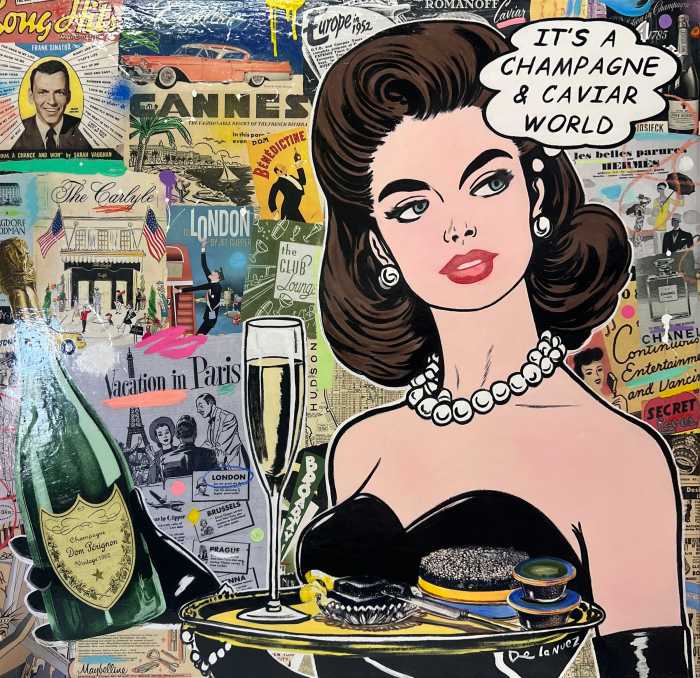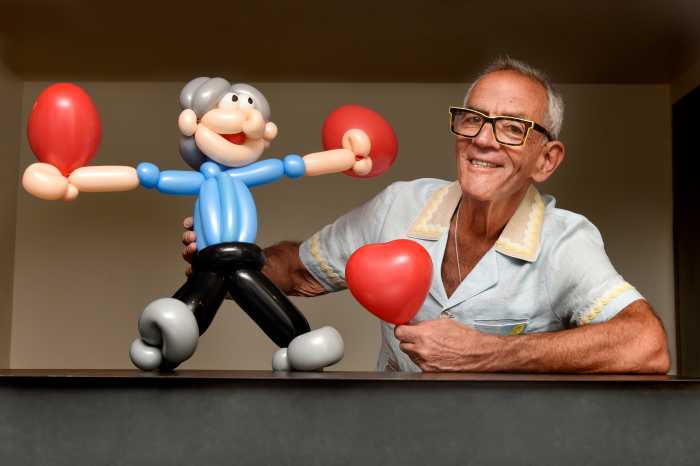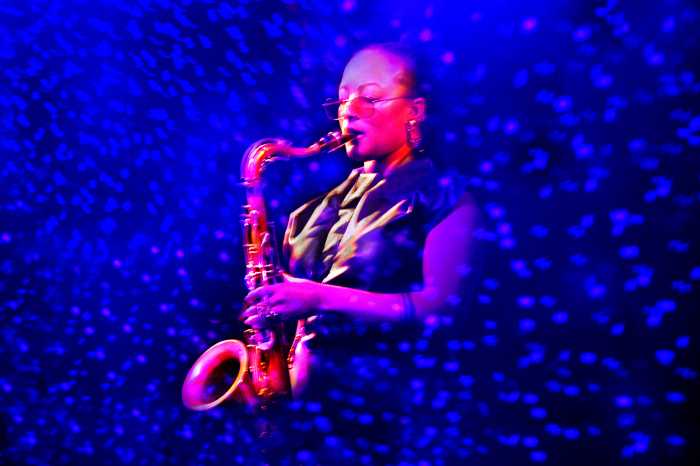By Roslyn Kramer
On an unusually balmy winter Saturday, what would normally have been the very last hours of panicked Christmas gift buying were not happening. Couples strolled along Downtown streets, but lists of gift recipients did not seem to be dancing in their heads as they glanced at store windows and moved on.
The mood might have been mellow for passersby, but for store owners and clerks, it was definitely morose. “It was very, very bad for us,” said Roy, who didn’t give his last name, amid the colorful fashion accessories, including earmuffs, at his booth at the Union Square holiday market. “This market sits on a subway stop” — which wasn’t in service because of the strike. “We did a third of what we would have done.” Still, he suggested he was doing better than other merchants in the mazelike market “who were counting on the last week to make it work.”
A few booths away Ruth Dorsla stood surrounded by her lush hand-dyed silks and cotton jackets and scarves she makes in Brooklyn. Dorsala — who has sold in the holiday market the last nine years — said Monday was her best day — until that evening when fear that the strike would really occur started to hit shoppers. She did one-quarter of her expected business, “and you can’t recover,” she said.
Movie theaters took a blow. Attendance was off roughly 60 percent at one nearby cinema.
Hospital waiting rooms did not seem more crowded than movie theaters. “We had a full staff but no patients,” said Charlie Murphy at the information desk at the New York Eye and Ear Infirmary at 14th St. and Second Ave. “It was like a morgue in here.”
Two venerable bookstores felt the strike’s impact. “Half as much sales,” Nancy Bass, proprietor of the Strand Bookstore at Broadway and 12th St., stated briskly, while using the newly installed elevator, going from floor to floor to show off the store’s stock of used, rare, discounted and hard-to-find books. “We were so geared up for an amazing Christmas. We have a new floor for art and kids’ books,” she said. “Last Friday we had a really good day. The difference was so marked.”
Things didn’t look any better a few blocks away at St. Mark’s Bookshop. “This strike hit our business big time,” manager Christopher Davidson said. Business wasn’t booming on Saturday, either. “Maybe people are sleeping late because of all the walking in the last few days,” he guessed.
“You literally expect your business to be one-quarter of your sales [at Christmas],” he noted. Unions are supposed to protect the working class but “they should have thought it through more.” Negotiations should have continued during the Christmas season, he felt, and “if nothing happened, then strike,” he added.
In a tortured but not unusual tale of getting to work, Ana Sgarbi, working at Private Collection on E. Ninth St., boutiqued to the hilt and definitely a shopping destination under normal circumstances, described a trek that began at 6 a.m. and included a 30-block walk to Woodside, Queens, in order to catch a train to Penn Station, where she transferred to the PATH, got off at Sixth Ave. and walked east to arrive at work by 10 a.m. She wanted to shop at Bloomingdales, but couldn’t, contributing to the citywide sales decline.
At Selia Yang, a shop for bridal gowns and evening wear, “it was a bummer,” said Jennie, at the sales desk. Customers cancelled fittings and workers couldn’t make it, so the store’s studio closed.
Helaine Sorgen at Clayworks Pottery, also on Ninth St., said she relies on walk-by customers who can carry her fragile pottery home on public transportation. Gone were the customers from Brooklyn, the walk-by traffic and the matinee attendees who come Downtown for lunch, a show and shopping. “Plus, foot traffic was so decreased,” said Sorgen, who has been in business 32 years.
Another perspective on the business plunge was explained by K. Kesselring, manager of August, a popular Bleecker St. bistro. Because of the strike “people left town much earlier,” he felt, making Saturday “one of our slowest days ever.”
Alex, owner of The Place (actually two Places: one on W. Fourth St. and another on Christopher St.) reported losing “eighty percent of our reservations for the week, which equals about $40,000. Large groups couldn’t come, to say nothing of the wait staff who lost a big chunk of their income, plus had to pay extortionist cab rates to get here — and then make no money. Normally this week is the busiest of the year.”
Christina, a waitress at French Roast and an aspiring actress who lives in Bedford-Stuyvesant, gave another mince-no-words take on the strike: “The restaurant was dead. I’m broke.”
Waitresses paid $60 a day to take cabs coming and going. “Most of the busboys walked three hours each way,” she said. “But the streets were crowded with people just trying to get home.”
The upside: French Roast contributed to employees’ transportation costs. Bigelow’s Pharmacy was also generous to employees, taking hotel rooms for staff who wanted to stay in the city, according to owner Ian Ginsberg.
“We dropped over 60 percent during the strike,” said Roy manager at BBQ restaurant at University Pl. and Eighth St.
“It’s 9/11 all over again, said John Kioussis, owner of Rockit Scientist Records on Eighth St. “Our Christmas rush started Monday — and ended Monday.”
Cafe Orlin on St. Mark’s Pl. is a perennial favorite, but that didn’t stop revenues from plunging 50 percent, said part owner Yossi Cohen. The cafe paid $400 a day for employees’ transportation during the strike.
Cohen was a rarity; someone who saw a cheery side to the strike. “I liked the atmosphere in the city — everyone’s stories about getting stuck, how long it took them, bicycling, getting coffee from the Red Cross walking over the bridge — it was like a festival.”
Or as Private Collection’s Sgarbi said, “You connect with people; it was fun.”



































